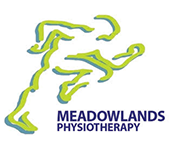Benefits of Physiotherapy for Carpal Tunnel
Many people believe that carpal tunnel is simply the term for an affliction of the wrist, but it’s actually the physical anatomy related to the bundle of nerves and ligaments that make up an intricate network at the base of the palm. Carpal Tunnel Syndrome (CTS) is the condition that affects this area and is commonly due to the pinching of the median nerve, which causes a range of symptoms including tingling or numbness, weakness or general pain.
Symptoms of CTS usually develop over time and can worsen with additional pain or swelling of the area, which often causes more pressure to the median nerve. There is no singular cause of CTS but it is more likely to happen to women and can be exacerbated by other conditions like diabetes, rheumatoid arthritis, hypothyroidism, and sprains or fractures to the wrist according to the National Institute of Neurological Disorders and Stroke.
It’s common to believe that those who sit typing at a desk all day are more prone to developing CTS, but that’s not necessarily true. General work stress, repeated use of vibrating machinery or tools, and other mechanical or medical issues in the wrist are all factors that can contribute to compression in this area.
Symptoms of Carpal Tunnel Syndrome
There are several different categories of CTS that can be diagnosed by a physician, but the symptoms present more or less the same. If any of these symptoms (or a combination of symptoms) sounds familiar to you, it’s a good idea to check in with your doctor for a full assessment and to rule out other possible health conditions.
Common symptoms include:
- This sensation is similar to the pins and needles feeling you may experience when your foot falls asleep. It may worsen and become painful when doing everyday activities such as driving or holding your phone.
- Over time it might become more difficult to close your fist or hold objects, and you may drop things more easily.
- This can feel different for everyone but usually there is an absence of feeling or trouble sensing when things are hot or cold. It can also feel like your fingers are swollen.
- This can accompany any of the above symptoms and can be difficult to ignore. If you’re finding it painful to move your fingers or grasp on to anything, CTS may be more advanced and require more urgent treatment.
If left untreated, the symptoms of CTS can start to affect other parts of the arm and shoulder, and eventually cause the muscles in the hand to atrophy. This can have an irreversible impact on mobility and overall sensation.
Benefits of Physiotherapy for CTS
Your doctor is the first line of defense in treatment of CTS as he or she will be able to recommend a proper course of action, particularly if there are underlying medical conditions that also need to be addressed.
A physiotherapist can assist with non-surgical treatment options by customizing a plan of exercises to stretch and strengthen the muscles and structures of the fingers and wrist. This regiment will help to reduce the symptoms and prevent further injury to the area.
Physiotherapists can also recommend alternative ways to perform daily tasks at work and at home to avoid agitating your carpal tunnel further and delay improvement.
Additional treatments that your physiotherapist can recommend are:
- Yoga
- Acupuncture
- Massage therapy
All these activities can help restore functionality to the wrist and fingers, in conjunction with suggested exercises.
If you are dealing with symptoms related to Carpal Tunnel Syndrome, contact us today to learn more about how we can personalize a physiotherapy treatment plan to help you get relief faster.

